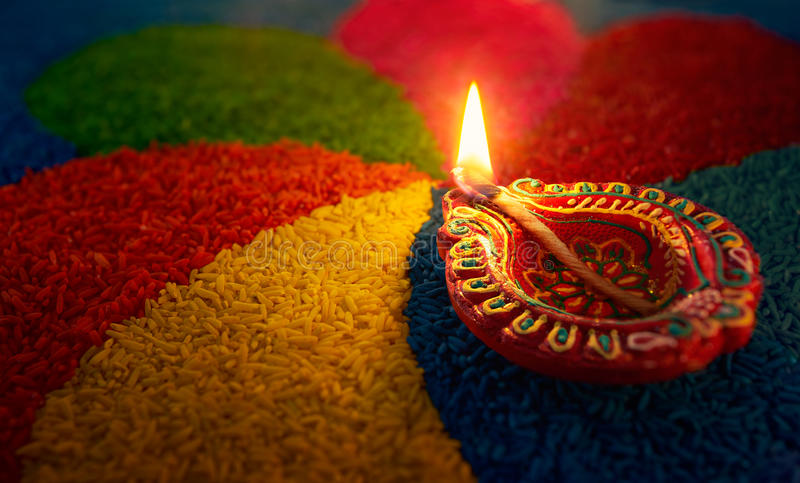Diwali is India’s most important festival of the year—a time to celebrate the triumph of light over darkness, knowledge over ignorance, and good over evil. Widely observed among more than a billion people from a variety of faiths across India and its diaspora, the five days of Diwali are marked by prayer, feasts, fireworks, family gatherings, and charitable giving. For some, Diwali is also the beginning of a new year.
But Diwali is perhaps best known as a festival of lights. Derived from the Sanskrit Deepavali, which means “row of lights,” Diwali is known for the brightly burning clay lamps that celebrants line up outside their homes.
Just like so many other cultural and religious holidays, people mark Diwali (sometimes also spelled Divali) in different ways across the culturally diverse regions of India and throughout the global diaspora. Celebrated by people of Hindu, Buddhist, Jain, and Sikh beliefs, as well as those of Indian and non-Indian descent, the festival lasts for five days, starting on the 13th day of the dark half of the lunar month Ashvina to the second day of the light half of the lunar month Karttika.
Diwali typically commemorates the return of Prince Rama of Ayodhya, his wife Sita, and brother Lakshman after 14 years of exile, The Hindu American Foundation explains. In the Hindu tradition, Prince Rama is seen as an incarnation of Lord Vishnu and an embodiment of dharma or righteousness. Sita is an incarnation of Lakshmi, the goddess of wealth and prosperity. The residents of Ayodhya were so glad the rightful king and queen had returned, they lit lamps in their honor, an element of the festivities that’s still an important part of the festivities today.
Other traditions recognize Diwali as the day Lord Krishna defeated the demon king Narakasura and for some regions of India, it also coincides with the Hindu New Year. But many people celebrate more generally as a time to gather with friends and family, feasting, and look forward to the year ahead.
“I have always known that Diwali was the Festival of Lights and a major holiday for many South Asians, but I didn’t really understand the origins of the holiday and how diversely it’s celebrated across cultures, religions, and regions until I started researching it,” explains Sonya Lalli, author of A Holly Jolly Diwali. “Diwali can mean so many things to so many people, but at its core, for me it’s about celebrating the light in this world over the darkness, being with the people I love.”

